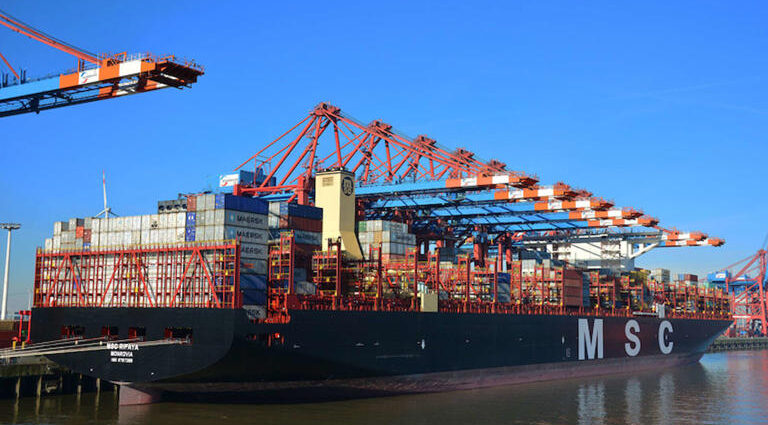In a groundbreaking development for African maritime trade, MSC Mediterranean Shipping Company has made history by deploying ultra-large container vessels (ULCVs)—each with a jaw-dropping 24,000 TEU capacity—to West Africa for the first time.
This bold move, marked by the arrival of MSC DILETTA and MSC TÜRKIYE, signals a major turning point in the region’s logistics landscape and positions West African ports at the forefront of global shipping.
A Landmark First for the Continent
On April 23, the MSC DILETTA made its historic first call at Lomé, Togo, becoming one of the largest ships ever to dock at an African port. Shortly after, the MSC TÜRKIYE—a 400-meter-long behemoth with a draft of 16 meters and a beam of 61 meters—followed suit, calling at ports in Abidjan (Côte d’Ivoire), Tema (Ghana), and Kribi (Cameroon).
This event doesn’t just mark the arrival of big ships—it represents the scaling up of West Africa’s global trade ambitions.
“This deployment reflects MSC’s deep commitment to Africa’s economic future,” the company stated, highlighting its strategy to strengthen supply chains and catalyze development through enhanced port access and shipping infrastructure.
Why Now? The Drivers Behind MSC’s Mega Move
MSC’s decision to bring its largest vessels to African shores isn’t arbitrary. It’s the result of several interlinked trends:
-
Explosive Asia-Africa trade growth: With trade between Asia and West Africa soaring, larger vessels are needed to meet rising demand and ensure cost-effective, efficient shipping.
-
Rising customer expectations: Global importers and exporters are demanding faster turnaround and greater cargo capacity—something only mega ships can deliver.
-
Long-term investment in Africa: MSC is doubling down on its role as a strategic trade partner, betting on West Africa’s potential to become a global logistics powerhouse.
The Economic Impact: Bigger Ships, Bigger Potential
The arrival of 24,000 TEU ULCVs unlocks a host of benefits for West Africa:
-
🚢 Boost in trade volumes: Larger ships mean more goods moved per voyage, increasing import-export activity and improving regional trade balances.
-
⚙️ Infrastructure development: To handle these giants, ports are investing in deeper berths, stronger cranes, and better logistics hubs—creating jobs and long-term capacity.
-
⏱️ Increased efficiency: More cargo per ship equals fewer trips, faster delivery, and lower costs—translating into a more competitive regional economy.
A Bold New Chapter for African Maritime Trade
As MSC’s mega vessels become a regular presence on the Africa Express service, connecting China, South Korea, Southeast Asia, and West Africa, they bring more than just steel and containers—they carry the promise of transformational change.
From Lomé to Tema, Abidjan to Kribi, the ports of West Africa are stepping onto the world stage—ready to serve as strategic trade hubs in the 21st century.
With MSC at the helm, Africa’s maritime future just got a whole lot bigger.




